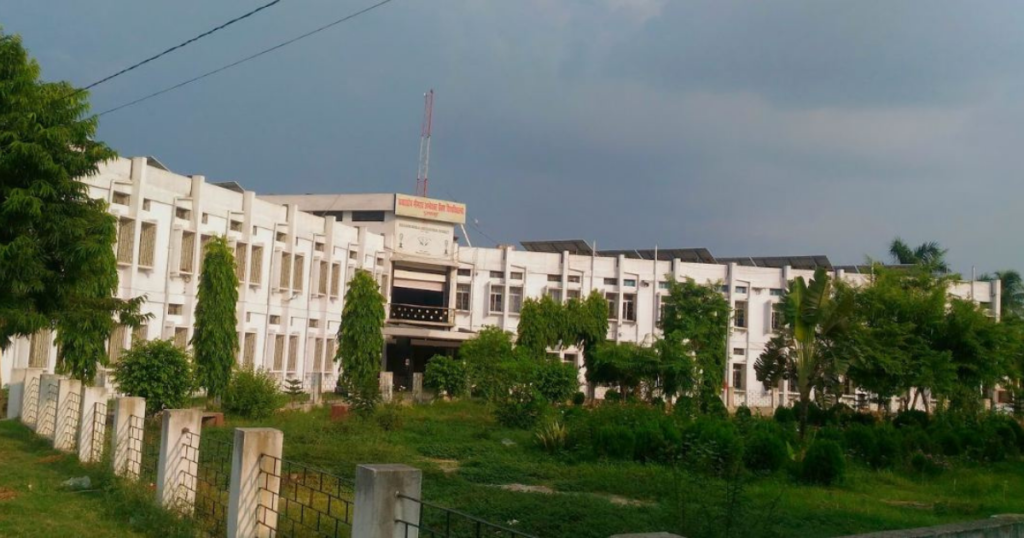Bihar Raj Bhavan forms a 3-member panel to resolve university issues, including Samarth portal glitches, budget delays, and teaching quality concerns.
In a renewed effort to address persistent academic and administrative bottlenecks within Bihar’s state universities, the Raj Bhavan has formed a three-member high-level committee comprising prominent vice-chancellors from across the state. The committee has been tasked with diagnosing critical issues, including those related to digital governance via the Samarth portal, university budgeting delays, and the overall teaching-learning environment.
The committee’s formation comes in response to years of ongoing concerns voiced by both students and university officials, and it is seen as a welcome attempt to bring systemic reform. According to the official notification issued on Wednesday, the committee will submit its detailed report within 15 days to the state’s Education Department.
The notification, signed by Robert L. Chongthu, Principal Secretary to the Governor, officially names the committee members:
- Prof. Pramod Kumar Bajpai, Vice-Chancellor of Jai Prakash University, Chapra
- Prof. Ajay Kumar Singh, Vice-Chancellor of Patna University
- Prof. Vivekanand Singh, Vice-Chancellor of Purnea University
This committee has a clear and urgent mandate—to engage with other universities, collect feedback, assess problems on the ground, and propose practical, actionable recommendations.
At the center of the discussions is the Samarth portal, a centralized digital platform launched with the goal of streamlining administrative and academic operations such as admissions, student records, exam results, and faculty management. While the intention behind Samarth is to modernize Bihar’s higher education landscape, the implementation has been fraught with delays, confusion, and a lack of user training.
“Many institutions are struggling to navigate the Samarth system,” admitted a senior official from a state university. “The portal is a good initiative, but without adequate support and awareness at the grassroots level, it’s becoming a challenge rather than a solution.”
Beyond digital concerns, the committee will also look at budgetary challenges, especially the timely release and effective utilization of funds for infrastructure, salaries, academic activities, and research. Delayed disbursements have often led to stalled projects, payment backlogs, and operational hurdles in many of Bihar’s state-run universities.
Also under review is the quality of teaching and learning, including gaps in faculty appointments, outdated syllabi, and insufficient academic resources. These problems, some of which have persisted for decades, continue to erode the quality of higher education and affect student outcomes.
The decision to form this committee was finalized during a key meeting of state university vice-chancellors held on June 18, chaired by Bihar Governor and Chancellor Arif Mohammed Khan. At the meeting, vice-chancellors openly discussed the structural and operational hurdles facing their institutions. Following the discussions, it was unanimously agreed that a focused committee could better study the issues and recommend realistic solutions.
Importantly, the process will be consultative and participatory. All state university vice-chancellors have been invited to share their recommendations with the committee. In addition, committee meetings will remain open to in-person participation by stakeholders, including administrative officers and academic staff who wish to voice their perspectives directly.
Universities that have received the official notification include Patna University, Pataliputra University, Magadh University, B.R. Ambedkar Bihar University (Muzaffarpur), Lalit Narayan Mithila University (Darbhanga), Tilka Manjhi Bhagalpur University, B.N. Mandal University (Madhepura), Munger University, Maulana Mazharul Haq Arabic and Persian University, and Kameshwar Singh Darbhanga Sanskrit University, among others.
While the timeframe is tight, many in the academic community are cautiously hopeful that the committee’s findings could lay the groundwork for long-term reform.
“This is a crucial opportunity,” said a faculty member from Mithila University. “If the recommendations are acted upon in earnest, we might finally see positive structural change in Bihar’s university system.”
The clock is ticking, and the education fraternity now waits to see whether this initiative will translate into meaningful improvements in governance, digital adoption, and academic excellence across Bihar’s higher education institutions.
